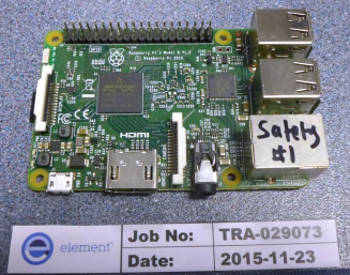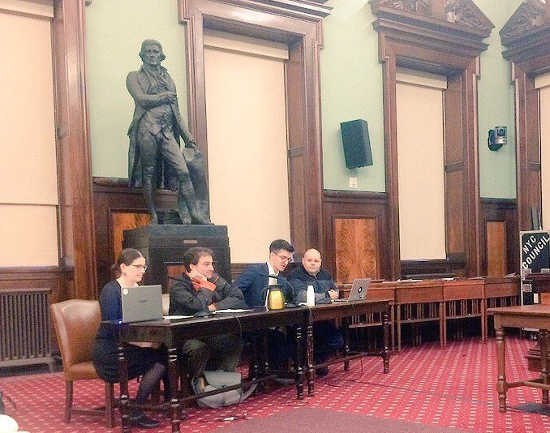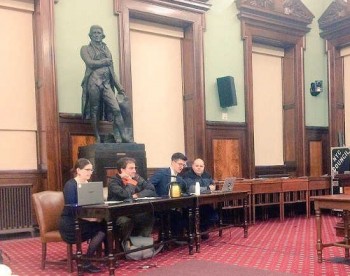The Raspberry Pi Report
The Raspberry Pi managed to cram a lot of history into only 29 days this February, even without mentioning the introduction of the Pi 3 on Monday.
The month of February kept up with the trend of bigger and better things happening in the Raspberry Pi world. From new games to updates from the International Space Station, things keep moving on for the Raspbery Pi and the Raspberry Pi community. While quite a few things happened this past month, here’s a summation of the biggest stories.
 More distros to choose from – February marked the arrivial of several new distros that Raspberry Pi users can now install. Tizen 3.0, Chromium 0.4 and Manjaro-ARM are available to download for the Raspberry Pi 2. The Manjaro-ARM project now allows Raspberry Pi users to enjoy Arch Linux without having to do an Arch install and is also broken down into four different editions. Media, Server, Basic and Minimal editions all cater to situations that most Raspberry Pi users fall into. Tizen users will be excited to see that Tizen 3.0 is now fully functional on the Raspberry Pi 2. This is a great move, since more users will be introduced to the Tizen platform who might not have had a chance to experience it before. Last, but not least is the release of Chromium 0.4. Chromium was already available, but with kernel improvements and more memory storage, version 0.4 is leaps and bounds ahead of Chromium 0.3
More distros to choose from – February marked the arrivial of several new distros that Raspberry Pi users can now install. Tizen 3.0, Chromium 0.4 and Manjaro-ARM are available to download for the Raspberry Pi 2. The Manjaro-ARM project now allows Raspberry Pi users to enjoy Arch Linux without having to do an Arch install and is also broken down into four different editions. Media, Server, Basic and Minimal editions all cater to situations that most Raspberry Pi users fall into. Tizen users will be excited to see that Tizen 3.0 is now fully functional on the Raspberry Pi 2. This is a great move, since more users will be introduced to the Tizen platform who might not have had a chance to experience it before. Last, but not least is the release of Chromium 0.4. Chromium was already available, but with kernel improvements and more memory storage, version 0.4 is leaps and bounds ahead of Chromium 0.3





 The agreement goes on to state: “There is no just reason for delaying SCO’s appeal from such Orders, as the final resolution of SCO’s claims may make it unnecessary, as a practical matter, for the Court to decide the several pending motions concerning IBM’s counterclaims, given SCO’s bankruptcy and its explanation that it has de minimis financial resources beyond the value of the claims on which the Court has granted summary judgment for IBM.”
The agreement goes on to state: “There is no just reason for delaying SCO’s appeal from such Orders, as the final resolution of SCO’s claims may make it unnecessary, as a practical matter, for the Court to decide the several pending motions concerning IBM’s counterclaims, given SCO’s bankruptcy and its explanation that it has de minimis financial resources beyond the value of the claims on which the Court has granted summary judgment for IBM.”


 The Great 2016 Linux Mint Hack: The hack at one of the crown jewels of Linux distros has undoubtedly been the biggest story this week. I’ll not bore you by repeating details which most of you have probably already read by now, but will direct those of you who don’t know to
The Great 2016 Linux Mint Hack: The hack at one of the crown jewels of Linux distros has undoubtedly been the biggest story this week. I’ll not bore you by repeating details which most of you have probably already read by now, but will direct those of you who don’t know to 



